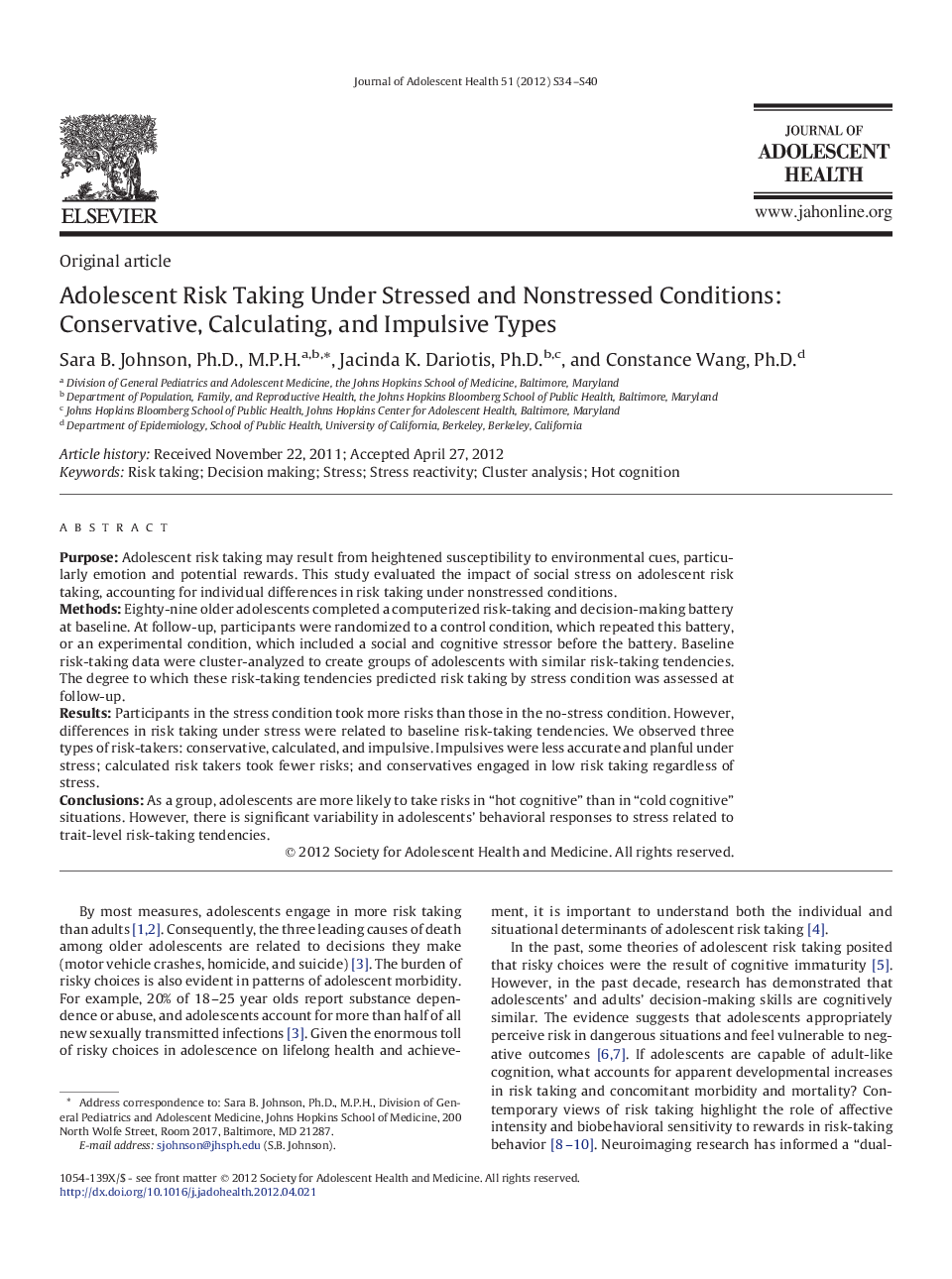| Article ID | Journal | Published Year | Pages | File Type |
|---|---|---|---|---|
| 1080874 | Journal of Adolescent Health | 2012 | 7 Pages |
PurposeAdolescent risk taking may result from heightened susceptibility to environmental cues, particularly emotion and potential rewards. This study evaluated the impact of social stress on adolescent risk taking, accounting for individual differences in risk taking under nonstressed conditions.MethodsEighty-nine older adolescents completed a computerized risk-taking and decision-making battery at baseline. At follow-up, participants were randomized to a control condition, which repeated this battery, or an experimental condition, which included a social and cognitive stressor before the battery. Baseline risk-taking data were cluster-analyzed to create groups of adolescents with similar risk-taking tendencies. The degree to which these risk-taking tendencies predicted risk taking by stress condition was assessed at follow-up.ResultsParticipants in the stress condition took more risks than those in the no-stress condition. However, differences in risk taking under stress were related to baseline risk-taking tendencies. We observed three types of risk-takers: conservative, calculated, and impulsive. Impulsives were less accurate and planful under stress; calculated risk takers took fewer risks; and conservatives engaged in low risk taking regardless of stress.ConclusionsAs a group, adolescents are more likely to take risks in “hot cognitive” than in “cold cognitive” situations. However, there is significant variability in adolescents' behavioral responses to stress related to trait-level risk-taking tendencies.
